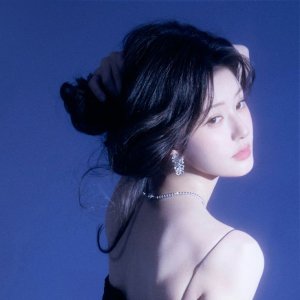
This review may contain spoilers
So much potential!
Legend of Anle was undoubtedly one of my most highly anticipated dramas for this year. I knew I liked Gong Jun after his remarkable performance in WOH, and the accolades surrounding Dilraba also intrigued me. I was eager to witness their talents in this new series. The captivating synopsis and intriguing trailer further fueled my excitement.From the moment the drama premiered, I was religiously invested, watching the episodes daily and meticulously jotting down notes as the story unfolded.
Initially, I must commend the strong start the series had. The first ten episodes were brimming with potential and skillfully set the stage. Ren Anle, the female lead, instantly won my heart as one of my all-time favorite leads. Her wit, charm, strength, and humor had me laughing and thoroughly enjoying every moment. Han Ye, although quite different, proved to be an equally impressive lead, portraying a gentle and kind character whose personality complemented Ren Anle's perfectly, making them an endearing couple. His unwavering loyalty to Di Ziyuan revealed the essence of his character and set the tone for his development.
A notable aspect that pleasantly surprised me was the abundance of strong female characters who were not the main lead. The drama skillfully portrayed numerous women with strength and intelligence, be it in martial arts or other aspects of life. This contrasted with typical cdramas where the focus tends to solely revolve around the female lead's strength, making Legend of Anle stand out in this regard.
The early stages of the drama also excelled in presenting captivating investigations led by Han Ye and Ren Anle, showcasing their intelligence and establishing a profound bond that played a pivotal role in the rest of the story.
Regrettably, my enthusiasm took a hit as we reached episode 12. From that point onward, the plot began to lose its momentum, becoming sluggish and uninteresting. To my disappointment, the main leads received less screen time, while secondary characters dominated the narrative. This shift hindered the story's progression, leaving me feeling like nothing substantial was happening, and even the leads' charisma seemed to wane amidst the prolonged focus on characters like Di Cheng'en, Luo Mingxi, and Anning.
Speaking of secondary characters, Luo Mingxi, the second male lead, failed to resonate with me. Despite his importance to the story, I found his personality dull and unengaging, struggling to form any meaningful attachment. Di Cheng'en, while intentionally unlikable, became an excessively detestable character, though I admit her role served the plot effectively. Anning, initially introduced as a strong and high-ranking general, fell short of her potential, often coming across as dim-witted and uninteresting during the stagnant episodes.
Nevertheless, Wen Shuo's character was a bright spot. His endearing relationship with Han Ye and his developing bond with Ziyuan were a pleasure to watch, though I felt some emotional scenes in the final episodes could have been better portrayed by the actor.
One aspect that disappointed me was how Han Ye discovered Ren Anle's identity. The potential for a profound and emotional revelation was squandered, culminating in a montage of memory scenes and a shocked expression. Similarly, the revelation of Di Ziyuan's true identity diminished the intrigue of her character.
Fortunately, the last ten episodes were better, even managing to make warfare engaging despite it not being my preferred theme. However, the plot involving Luo Mingxi and the loss of Qingnan city felt convoluted and lacked courage to make him actually do something wrong, which made it feel like a missed opportunity for compelling storytelling and cowardly writing.
The final three episodes were strong and provided a satisfying conclusion, though I regret not seeing all the scenes of Di Ziyuan and Han Ye that I knew had been filmed.
On a more technical note, the OST was good, with some tracks earning a place on my playlist. The visuals, while generally appealing, occasionally bordered on being overly exaggerated. The CGI, though, met my expectations.
In conclusion, Legend of Anle possessed considerable potential that remained untapped. While not a terrible drama, it did not live up to its promise. I wouldn't rewatch it, but for those with patience and the willingness to use the skip button occasionally, I recommend giving it a chance.
Was this review helpful to you?

This review may contain spoilers
I definitely have many opinions about this drama
There are certain dramas that seem to be a simple must watch. Usually it’s that drama that everyone talks about in a good light, is portrayed as one of the best of the genre and is just, overall, surrounded by a lot of praise. LBFAD has emerged as one such drama in the xianxia genre. Despite being released less than a year ago, it has generated so much buzz and discussion that it almost feels like a classic.However, upon watching the trailer, I found myself doubting whether I would enjoy it. The first thing that greatly bothered me was the FL. In less than two minutes, the trailer gave me the impression that her attitude was annoying and excessively childish for my taste. Regrettably, my fears were confirmed when I began watching the drama. The FL, Xiao Lanhua, proved to be excessively childish, which was just the tip of the iceberg regarding the numerous issues I had with her character. This happens to be my primary criticism of the drama, so let's start with that.
First and foremost, Xiao Lanhua is not your typical innocent xianxia FL. She is actually stupid. Throughout a significant portion of the drama, she seems to lack any coherent thought process, only to suddenly have moments of brilliance where she makes discoveries that eluded everyone else. These moments feel contrived and overly convenient for the plot, making it hard to believe that she is genuinely intelligent, considering her usual behavior. Even when given simple instructions (I'm looking at you, body-swapping arc), she fails miserably to follow them, no matter how critical the situation.
Xiao Lanhua's actions lack forethought, and even when she does think, she struggles to form rational ideas. And don't even get me started on her gaslighting everyone during the mortal realm arc into a wrong interpretation of Xie Wanqing's book of life (which, by the way, might win the prize for the dumbest moment contest, given that she managed to convince three other characters to be equally foolish).
Towards the end, her character does become more intelligent, and I was actually enjoying her development when she returned from the mortal realm. Unfortunately, it was abruptly rushed in the final few episodes with the introduction of the goddess plot. While I understand what they were trying to achieve, I didn't think it was executed in the best possible manner.
Moving on from the FL, the side characters were a mixed bag for me. Some I liked, while others I strongly disliked. Changheng, for instance, is a classic case of "I swear, bro, just believe me." He is the god of war, said to be the only one capable of potentially defeating Dongfang Qingcang in battle. However, we never actually witness this immense power. In fact, I don't think he wins a single battle throughout the 36 episodes of this drama.
Shangque, although endearing, is incredibly foolish (putting up a tough competition against Xiao Lanhua in that regard). What frustrated me the most about his character is that he is a dragon, a legendary creature, but his strength is never adequately showcased. He only has a couple of dragon scenes in the first few episodes, and that's it.
Jieli, when initially introduced, was highly unlikable. To be completely honest, I never grew to like her; I simply became accustomed to her presence and gained a better understanding of her character.
Together, Jieli and Shangque formed a disastrous side couple. I am someone who generally dislikes side couples since they often seem unnecessary and take up too much screen time, but, oh boy, do Jieli and Shangque get the prize for this one. Their scenes were unbearable, to the point where I found myself skipping a significant portion of them, particularly towards the end when I had become thoroughly fed up. Overall, the romance was dull and difficult to watch.
These were not the only scenes I skipped. The final few episodes had certain scenes that were excessively long, particularly the battle between the fairies and the moon tribe. The scenes from the moment Xunfeng brought Xiao Lanhua to Chidi’s sword until the resolution of that ordeal could have been significantly shorter.
As for the OST, it didn't particularly stand out. The songs complemented the scenes adequately, but I didn't love any of them. They were merely okay.
I realize that it may seem like I only have criticisms to offer. However, there were aspects of this drama that I genuinely enjoyed. First, it’s safe to say that LBFAD is addictive. It is probably the fastest I’ve ever watched c-drama, providing immense entertainment value.
The romance in the drama was well-executed. Despite Xiao Lanhua's numerous flaws, she had great chemistry with Dongfang Qingcang. Watching their relationship develop was a pleasure, and it definitely stood out as the highlight of this drama. I couldn't help but smirk at the "I can change him" plotline, because it actually worked (one of those things that only happen in fantasy fiction).
Wang Hedi's acting was superb. His portrayal of Dongfang Qingcang was on point, capturing the different stages of his character's transformation, from the initially cold and emotionless man to the deeply enamored one in the end (the last few episodes got him acting like rent was DUE). Even his portrayal of Xiao Lanhua was commendable. On the other hand, Yu Shuxin failed to leave a lasting impression. Her character was annoying, and I'm uncertain whether it was solely a writing problem or if her acting also contributed to it. Nevertheless, she did a decent job overall, considering the circumstances.
The main conflict of the drama was solid. There was a primary antagonist, as well as a more powerful and malevolent antagonist. While this wasn't particularly groundbreaking or innovative, it was executed well.
Danyin was a pleasant surprise. When I first encountered her character, I was scared for my LIFE, expecting her to be annoying and obstructive to the story. However, she turned out to be the complete opposite, and I was happily surprised by her character arc. Additionally, her storyline with Jieli towards the end was intriguing, albeit rushed.
Xunfeng and Dongfang Qingcang were fortunate enough to receive the best character developments in this drama. The arc involving their father, Dongfang Qingcang's realization of the truth, and Xunfeng's growing understanding of his older brother were introduced and resolved masterfully, tied up neatly with a shiny red ribbon.
Overall, LBFAD is a solid drama. It possesses a well-defined beginning, middle, and end, with a good conflict and a satisfying romance. However, the numerous problems I had with it marred the experience in many instances. Despite its flaws, I believe it is still worth watching.
Was this review helpful to you?
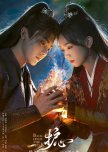
This review may contain spoilers
A fresh and very amusing love story
Back From the Brink is a true gem among historical c-dramas, charming with its compelling narrative of love, betrayal, and vengeance. It truly sets itself apart from other dramas with a delicate balance between lightheartedness and seriousness, often injecting moments of delightful humor.Tian Yao and Yan Hui not only make a remarkable couple but also stand as enchanting characters in their own right. Yan Hui, in particular, breaks the mold of the typical female lead. Her unwavering determination, when added to her feelings for Tian Yao make for a refreshing change, deviating from the common trope of pining for love. Furthermore, her fear of death (although it may seem like something basic and obvious) adds a nuanced layer to her character in many moments, distinguishing her from other FLs in the genre.
At first glance, Tian Yao may appear as the archetypal male lead, but as the story unfolds, we witness the unveiling of a pure-hearted individual with a touch of innocence and youthful charm.
While the story may have a slightly slow start in the initial episodes, it quickly gains momentum and it becomes quite interesting moving forward. However, there are some plot points in the middle, particularly the love triangle involving Bai Xiaosheng, that feel underdeveloped and lack proper buildout. Another issue lies with the main antagonist, Fu Yin. His origins and true desires remain unclear, leaving his motivations seemingly rooted in baseless anger towards the world. This shallow portrayal fails to elevate him to the status of a formidable major villain. In contrast, Suying proved herself as a stronger antagonist with a comprehensible motive. Her obsession with Lu Musheng, which she misconstrues as love, drives her to take extreme measures to save him and get him to love her again.
Despite these flaws, the drama's strengths outweigh its weaknesses. The romance, in particular, is expertly executed, eschewing the tiresome cycle of on-again-off-again relationships. Once Yan Hui and Tian Yao come together, they remain steadfast, a welcome departure from the endless obstacles that often plague main couples. However, more passionate and intimate moments between them would have further enriched their connection (and the few kiss scenes felt somewhat lacking passion).
Zhou Ye once again delivers a stellar performance, portraying an immensely funny and charming female lead. Her ability to convey emotions and provide comedic relief is commendable. Hou Minghao also impresses as Tian Yao, showcasing remarkable facial expressions that effectively convey his character's emotions (the reactions when Yan Hui unloads his own trauma onto others are especially noteworthy for their hilarity.).
Regarding the OST, there is little to critique. It is good overall, with a great opening theme, but it fails to leave a lasting impression or emerge as a standout aspect of the drama.
In conclusion, while Back From the Brink may not be a drama I would rewatch in its entirety (although certain parts, such as the Dragon Valley arc, Tian Yao baby arc, and the episodes surrounding the wedding, are worth revisiting), it is definetly a drama I recommend to anyone who enjoys xianxias. This drama does particularly well what it sells and brings a fresh perspective to the genre, offering something new and captivating to watch.
Was this review helpful to you?
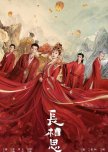
It is, as expected, great!
Taking my time to savor "I Lost You Forever" proved to be a well-judged decision. While I anticipated enjoying it, the strategic delay heightened my appreciation, leading me to want to share my thoughts now.This drama unfolds like a tapestry. This isn't a result of veering off course or losing direction but rather due to the fluid changes in scenarios and the intermittent introduction and departure of characters outside the main quartet. This dynamic approach, while invigorating, makes the story feel longer than it is, which, fundamentally, isn't a negative aspect.
Undoubtedly, the standout feature of this drama is its characters. The majority of them radiate an exceptional sense of authenticity. Each character possesses an irresistible charm coupled with unforgiving flaws, navigating actions that alternately endear and exasperate, reflecting not poor writing but a genuine depiction of human complexities.
Despite the political storyline's crucial role in the final episodes, the narrative retains its character-driven essence, so I feel it is only fair to have a discussion of the four main characters.
Xiaoyao's character is a truly captivating focal point of the narrative. Initially introduced as a man and maintaining this identity for a significant duration, her complexity adds a unique layer to the story. Strikingly, she manages to be simultaneously likable and polarizing, creating a multifaceted appeal that solidified my adoration for her as a central character. Delving extensively into Yang Zi's performance almost feels unnecessary – her portrayal in this role is nothing short of phenomenal. Consistently compelling from the beginning to the end, Yang Zi brings a depth and authenticity to Xiaoyao that is undeniably convincing.
Cangxuan didn't immediately capture my favor in the initial episodes, but over time, I found myself warming up to him. His narrative intertwined with Xiaoyao adds a compelling dimension, challenging conventional expectations of the male lead. Zhang Wanyi's portrayal matches Yang Zi's excellence, contributing significantly to the seamless execution of their interconnected stories.
On the flip side, Tushan Jing emerges as the narrative's Achilles’s heel, showcasing vulnerabilities both in writing and acting. Initially established as a fair enough character, he falters significantly as the story unfolds. His indecisiveness and weakness, despite hailing from one of Dahuang's most influential families, present a stark contrast to the greatness attributed to him. While the hardships he faced in the past are acknowledged, they fail to fully explain the extent of his character shift.
Deng Wei's portrayal of Tushan Jing, though not abysmal, falls noticeably short compared to the other three. His limited range of facial expressions and lack of nuance became wearisome after about 25 episodes. As the main love interest, his on-screen chemistry with Yang Zi lacks conviction, making their romantic moments feel unconvincing.
Lastly, Xiang Liu. It's an understatement to label him merely as my favorite. Tan Jianci consistently exceeds expectations, proving to be the unparalleled choice for bringing Xiang Liu to life. This character, with its profound complexity and layers, posed a substantial challenge, one that Tan Jianci masterfully conquered. His expressions transcend the ordinary, evoking palpable emotions that leave me both connected and perplexed by the intricacies of his character.
Xiang Liu's love for Xiaoyao is evident, yet his actions defy predictability. He's capable of extraordinary feats for her, yet equally inclined towards unexpected choices. Will he go to extremes to protect her, or might he lead her into unforeseen challenges? The uncertainty surrounding his character adds a magnetic allure, keeping me on the edge of anticipation.
Eagerly anticipating the second part of this compelling story, I can only hope it maintains its current breathtaking quality. While aware that it will not unfold as I wish (I can feel it), the prospect of the unknown journey ahead is both intriguing and exciting.
Was this review helpful to you?
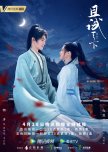
This review may contain spoilers
The main couple is definitely the best thing about WRTW
Indulging in this drama proved to be an emotional rollercoaster, leaving me torn between conflicting opinions throughout its 40 episodes (which I watched at an astonishing pace) and made writing a review quite irresistible.I love long dramas, but for me to stick to it, it has to have something that really catches my attention. In this case, it was the exceptional chemistry between the lead characters, Hei Fengxi and Bai Fengxi. Their individual personalities immediately drew me in, and their synergy as a couple was nothing short of mesmerizing. The compelling dynamics made me drown into them and want to devour the entire drama in one week just to get more and more.
While the leads undoubtedly stood out as the highlight of this drama and kept me invested throughout, even this remarkable couple couldn't shield me from my numerous grievances with the narrative, particularly from episode 20 onwards. One aspect that immediately caught my attention in a negative light was the disregard for several plot threads that I had expected to unfold continuously. I'm going to give three examples of this (spoiler alert! Not major ones but I thought I should give a heads up):
1. Han Puo, a character I anticipated having a family dynamic with the leads, mysteriously faded into the background after the "avenging" of his family, resurfacing sporadically as a seemingly inconsequential figure until the middle episodes and finally regaining importance in the last two episodes.
2. The birds, although understandable in their limited relevance to the storyline, left me wishing they had been mentioned again instead of appearing randomly in the background of scenes.
3. The portrayal of Feng Lanxi and Feng Chang's brotherly bond emphasized their deep love for one another and their status as each other's sole family. However, this important relationship was only briefly explored before Feng Chang's sudden disappearance, mirroring Han Puo's storyline. Although he did reemerge in the final episodes with some significance, it lacked the lasting impact one would expect.
Additionally, the recurring pattern of schemes and their swift resolution by the leads left me somewhat disillusioned. The court dramas were a never ending cycle of: Villain plots against Feng Lanxi → Feng Lanxi takes action → Villain triumphantly reveals it was all part of their trap → Feng Lanxi counters, it was his plan all along.
I also struggled to form attachments to any of the side characters, as the drama overwhelmingly focused on the leads, particularly Feng Lanxi for the initial 30 episodes. The lack of development and investment in the supporting cast diminished their impact.
Moreover, there was an imbalance in the storytelling, with the narrative heavily weighted toward Feng Lanxi, relegating Feng Xiyun to a secondary character status during the middle portion of the drama.
The final five episodes were just insufferable to me. The emphasis on war became overbearing, saturating the storyline with an excess of battle scenes that grew monotonous. The resolution felt too conveniently simplistic after enduring six years of tedious warfare and Yu Wuyuan's plotting during the entire drama, only to have his demise happen in a brief five-minute battle.
To exacerbate matters, the bittersweet ending felt gratuitous and unnecessary.
Upon reflecting on both the positives and negatives, I acknowledge that the overall rating should likely be lower. Nonetheless, the drama, at least during its initial 30 episodes, provided a really enjoyable experience, which ultimately holds significance to me.
I don’t think I would rewatch WRTW (maybe the very beginning), but I would definitely recommend it to someone who just wants to feel warmth from a main couple that loves and would do anything for eachother.
Was this review helpful to you?

This review may contain spoilers
Beautiful in the most heartbreaking ways
TTEOFTM is a drama that encompasses an overwhelming range of emotions. It possesses an exceptional quality, an ever-evolving storyline, breathtaking beauty, and heart-wrenching moments. Captivating me right from the first episode, its allure remained consistent throughout its entirety.If I were to offer advice to someone who hasn't watched this drama yet, it would be to dive in with minimal information. When I first watched it, all I had seen was the trailer (which, in hindsight, I wouldn't have watched) and a brief look into the synopsis.
From the outset, I knew that I would inevitably likeTantai Jin, as he was the male lead. However, I didn't expect this bond to form so swiftly (nor did Li Susu, I imagine). His life story, depicted early on in the drama, swiftly revealed the person he was destined to become, making me empathize with him and even root for his revenge against a world that had only inflicted pain and neglect upon him.
One quality I find immensely captivating in characters is their moral ambiguity and shades of gray in their actions. Tantai Jin exemplifies this remarkably, making it impossible to dislike him. As I mentioned earlier, he is extremely easy to sympathize with.
The extraordinary dynamics between the two leads instantly drew me in. Even when they despised each other, their chemistry was astonishing, intensifying as time passed. The development of their romance was exceptionally well-executed. Considering Ye Xiwu's rational standpoint, it was completely understandable for her to despise Tantai Jin after witnessing him kill everyone she knew. Thus, it took her a considerable amount of time to see him romantically. On the other hand, Tantai Jin was utterly incapable of love, and the Ye Xiwu he knew before was violent and cruel.
There were numerous moments of confusion. Sometimes, it seemed like Ye Xiwu was gradually falling in love with Tantai Jin, while at other times, she pitied him. There were even instances when she struggled not to perceive him as the Demon God, despite reminding herself repeatedly that he hadn't transformed into that yet. From Tantai Jin's perspective, a similar duality arose. This complexity mirrored the characters' own feelings and was beautifully conveyed to the audience. I cannot emphasize enough how brilliantly it was portrayed.
The side characters also played an integral role to me, particularly Pian Ran, Ye Qingyu, and Nian Baiyu, each forging intriguing relationships with the leads. Witnessing Tantai Jin's connections with Pian Ran and Nian Baiyu, and how these characters helped humanize him, was exceptionally gratifying. While I did grow fond of characters other than the leads, I must admit that my attachment wasn't as strong as in other dramas. Nevertheless, this doesn't necessarily diminish the overall experience.
Now, there were two specific aspects that bothered me slightly. Firstly, I wished the female lead had displayed a bit more power. There were scarce instances of Li Susu/Ye Xiwu/Sang Jiu engaging in combat compared to other characters, particularly Tantai Jin. Secondly, certain elements felt rushed and underdeveloped. However, I will excuse TTEOTM for this flaw, considering the constraints of a shortened drama and the team's commendable efforts within the limited available time.
Furthermore, I cannot overlook the absolutely incredible soundtrack of the drama. Even as I write this review, I am engrossed in its captivating melodies. Each song flawlessly complements the story and is used masterfully throughout.
It is equally impossible to disregard the astounding performances delivered by Luo Yunxi and Bai Lu. They flawlessly portrayed their respective characters. Luo Yunxi, in particular, convincingly embodied four distinct personas, effortlessly transitioning between the Demon God, Ming Ye, Tantai Jin, and Cang Jiumin while maintaining the necessary similarities that tied them together.
Till The End Of The Moon is undoubtedly the best drama I have watched in a considerable amount of time. The story, well-developed characters, captivating music, and visually striking aspects kept me enthralled to the point where I couldn't stop thinking about it, even during my day-to-day tasks. This drama continues to linger in my thoughts, and I hope it remains there for quite some time.
I am eager to rewatch it at some point to catch all the subtle details that may have escaped my notice the first time around, either due to being hooked by the main narrative or lacking sufficient knowledge of it. However, I will have to wait until I have healed to fully immerse myself in it once again.
In summary, Till The End Of The Moon is nothing short of fantastic!
Was this review helpful to you?

This review may contain spoilers
Pairing is the best thing, but hey, it's a romance story at the end of the day
To me, Love You Seven Times never aspired to claim the title of the best drama of the year. It didn't set overly high expectations, yet it managed to provide an enjoyable and satisfying piece of entertainment.I've noticed that many readers of the novel were left disappointed with the adaptation. While I believe the novel might offer a more finely crafted story, I haven't read it, which could explain why my assessment isn't as harsh.
Let's begin with what garnered the most discussion about this drama: the acting. Ding Yuxi undeniably delivered an outstanding performance. He immersed himself in his character, breathing life into it in an admirable manner. It's fascinating how, across different lifetimes, he portrayed subtle distinctions while maintaining consistency in his character. His portrayal was both concise and brilliant.
On the other hand, Yang Chaoyue's acting didn't reach the same level. While some viewers disliked her portrayal, I found it to be passable. She's neither a standout actress nor a terrible one, just somewhere in the middle. The issue may have been that she was placed alongside an exceptional actor, making her shortcomings more noticeable.
Despite the imbalance between the leads, I wouldn't trade their pairing. Their on-screen and off-screen chemistry is one of the drama's highlights, convincingly portraying them as a loving couple.
One aspect I thoroughly enjoyed was the visual aesthetics. This drama boasts some of the finest costume and scenery designs I've seen in a while. They fully capitalized on the opportunities presented by the Xianxia genre, resulting in a stunning production, from the celestial Heavenly Realm to the vibrant Mortal Realm and captivating Demon Realm. All three were a feast for the eyes. Additionally, the soundtrack was delightful.
The comedic moments were numerous and highly entertaining, with Yang Chaoyue shining brightest in these scenes.
The theme of multiple lives and the unwavering choice of each other in each one resonated with me as a sucker for romance, providing a satisfying narrative arc. The way these various lives intricately wove together and explained events as they unfolded was enjoyable. The one exception was the princess/general storyline, which felt rushed and out of place. I couldn't even form an attachment to that setting before the characters returned to the Heavenly Realm.
The third life and the Demon Realm arcs were the highlights. They both offered many elements that I found highly enjoyable.
The heartwarming relationships between Chu Kong, Xiangyun, Qian Mou, and Qian Ren, especially the latter two and their amusing yet endearing friendship, were satisfying to witness. However, I felt that the development of an equally strong friendship between Zihui and Jin Lian was lacking, leaving me expecting a rekindling of their bond that never materialized.
Turning to the aspects I didn't appreciate, I must mention the rushed romance. While I loved the leads' relationship, their sudden intense love for each other caught me off guard. It felt abrupt, almost as if I had skipped an episode and missed a crucial development between them.
The villain and overall conflict in the story were lacking depth and intrigue. It's challenging to pinpoint specific shortcomings because they simply failed to engage or offer anything novel or captivating.
Xiu Ming's character was particularly bad. I found him more detestable than the main villain and was genuinely disappointed when he received redemption at the end. His initial annoyance persisted, and he largely remained inconsequential during the middle parts until his sudden return to aid the leads.
The ending left much to be desired. I've grown weary of one of the main characters dying only to miraculously return in the final moments without any explanation of how, why, or when they managed to rise from the dead. While I understand that this may sometimes be a workaround to censorship, it's disheartening that the writers couldn't devise a more innovative solution to this recurring issue.
In conclusion, Love You Seven Times is worth watching. It may not become your favorite piece of media or a life-altering experience, but if you're seeking an enjoyable Xianxia romance, it's a solid choice.
Was this review helpful to you?
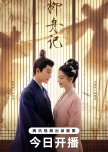
This review may contain spoilers
Fate, comedy, and conflict
“Are You the One?” captivates with a compelling premise: two rivals that become a fated couple whose love is threatened by a great lie. This setup immediately hooked me, as it’s clear from the outset that obstacles will stand in the way of their happiness. While a promising concept doesn’t automatically make for a great drama, I found that AYTO successfully delivered a satisfying viewing experience.The drama excels with its engaging storyline, well-developed characters, talented cast, and a conclusion that manages to be pleasing. However, it does have its flaws.
Let’s start with the standout elements, beginning with the cast. I would like to start off by saying that the magic of great actors in comedic roles is undeniable. Having seen Zhang Wanyi in Lost You Forever, I was already aware of his impressive skills, but his performance in AYTO elevated my admiration. His portrayal of Cui Xingzhou diverges sharply from his previous role, yet he handles it with remarkable finesse. His comedic timing, whether through subtle facial expressions or his delivery, was spot-on. His tendency to speak in a whisper — which is something he did quite oftenly —, however, bothered me greatly at times, as it felt unrealistic that other characters could hear him when he spoke so softly.
Wang Churan, by contrast, had a less comedic role, though her early scenes were filled with humor that she executed brilliantly, forming a delightful duo with Zhang Wanyi. Her character undergoes significant shifts throughout the drama — arguably too drastic, though that’s more a writing issue than an acting one — but she consistently maintained a strong performance from start to finish.
Regarding the plot, a key topic of debate among viewers was the separation of Xingzhou and Miantang. Some felt Miantang forgave Xingzhou too quickly, while others thought she should have taken even longer or maybe not forgiven him at all. Personally, I appreciated the narrative choices here; their time apart felt justified, and their gradual reconciliation was coherent and believable. The pacing of their relationship was neither rushed nor dragged out, striking a balance that complemented the growth of both characters, who were well-crafted with relatable desires, fears, and distinct personalities.
One aspect I regretted was the waning romance between Xingzhou and Miantang after they officially got together. In the final episodes, their dynamic shifted from passionate lovers to more of a friendly rapport, which felt at odds given how recently they had married. Nonetheless, they remained the highlight of the drama.
Now, onto the elements that didn’t quite work for me:
A significant political event pivotal to the second half of the drama was glossed over with a simple time skip. This was a missed opportunity, as the event’s importance to the story warranted more on-screen exploration rather than being summarized off-screen. Though I do believe it shouldn’t be too dragged out, it would’ve been appreciated to see at least a little bit of those events.
As for the supporting characters, Shi Xueji emerged as a pleasant surprise, bringing kindness and warmth that resonated with viewers. However, her romance felt rushed towards the end, lacking depth. It did have a big potential, as we got to see Ziyu and her start to have feeling for each other and deeply care for one another. Ziyu, however, only let go of Liu Miantang in the very ending of this drama and at a point where I believe more time was needed for a good romance to be fully developed between him and Xueji.
He Zhen and Zhao Quan were engaging on their own, and their romance was charming when it aligned with the main plot. However, as their storyline diverged, it began to feel disconnected and unnecessary, leaving me questioning why so much screen time was dedicated to them when it no longer served the main narrative in a harmonious way.
My final verdict is that “Are you The One?” was able to leave a good impression and will probably stick with me for a while, as it was one of my favorite 2024 Dramas so far. It has its problems, some that could’ve been easily fixed, others not so much. In the end, however, I enjoyed it and would recommend it to anyone who’s thinking of giving it a go.
Was this review helpful to you?

This review may contain spoilers
A very much highs and lows based drama
Only for Love is your classic CEO drama, complete with its share of highs and lows, classic clichés, and a blend of both familiar and unique elements. Reading the novel before fueled my anticipation for the drama, intensified by the cast and behind-the-scenes photos. After seeing the length of the drama (36 episodes), I was convinced that additional content was necessary to fill the narrative, a decision that occasionally led to dragging plotlines, saturated with an excess of frustrating misunderstandings, particularly exacerbated by overused phone-call scenarios (please silence those phones).Despite these occasional pacing issues, the final six episodes managed to redeem the moments of narrative sluggishness, delivering a satisfying viewing experience.
The dynamic between the female and male leads mirrored the novel, with added nuances and deviations, particularly in the later episodes. The uncle's misunderstanding plotline added a humorous twist, contributing to the drama's distinctiveness within its genre.
While the main couple's relationship maintained its novel counterpart, the side characters underwent substantial narrative expansion, at times overwhelming the story with too many subplots. The potential of the two main side couples, Bi Ruoshan and Guan Ji, as well as Qin Shiyue and Yu You, showcased promise but suffered from occasional missteps in execution, with one couple becoming excessively irritating and the other progressively improving.
Bi Ruoshan and Guan Ji initially presented a promising dynamic, offering a compelling contrast to the main couple with their intriguing relationship. However, their appeal diminished when Bi Ruoshan's inexplicable anger towards Guan Ji became a source of exasperation, the reason I truly cannot recall. The repetitive nature of scenes where he pursued her grew wearisome, occupying more screen time than warranted until they eventually resolved their relationship issues. On the other hand, the trajectory of Qin Shiyue and Yu You's relationship began on a less impressive note but evolved positively over time. While I did experience a slight cringe at Qin Shiyue's persistence, it didn't bother me to the extent I've observed in others. Overall, they proved to be a satisfactory side couple, and I found their presence on screen neither tiresome nor overbearing.
The second male lead proved to be a debacle. His origin remains a mystery (where did he come from?), and his peculiar behavior raises questions about his presence in the narrative. The extent of his persistence and oddities prompts one to wonder why Zheng Shuyi hasn't sought a restraining order against him. Despite his unwarranted advances and persistent behavior, he oddly remains portrayed as a nice character. Paradoxically, while he doesn't obstruct the main couple directly, his professed love for Zheng Shuyi and his insistence on making her choose him appeared nonsensical.
One positive alteration from the novel was the more lighthearted portrayal of Shi Yan, rendering him a more likable character without compromising his essence.
Regarding the cast, it's undeniable that this drama boasts some prominent names, a factor that may explain the excessive importance given to side characters, even when arguably unnecessary. Specifically focusing on the male and female leads, contrary to prevailing opinions, I found the casting commendable. Bai Lu, a consistently good choice, demonstrated her prowess as an actress and delivered a compelling portrayal of Zheng Shuyi. On the other hand, Wang Hedi's selection appeared somewhat controversial. While I did enjoy his performance, I acknowledge there is room for improvement in acting. That being said, it's challenging to envision anyone else embodying Shi Yan as effectively. He undeniably suited the role well.
The soundtrack, a pleasant surprise, featured a mix of conventional cheesy tunes and standout tracks that captured attention.
In conclusion, "Only for Love" is not without its flaws, there is great room for improving writing and direction. Nevertheless, the delivered product managed to satisfy me, offering a blend of engaging elements that balanced its imperfections.
Was this review helpful to you?

